Competency Frameworks Consultancy Services
Competency Frameworks Consultancy
Our approach to creating competency frameworks leads to high performance and staff retention
Most of us have experienced unclear expectations in the workplace.
If you don’t have a Competency Framework in place, your people won’t know what’s expected and your managers will lack effectiveness.
At Let’s Talk Talent we take into account how your strategy, culture and behaviours are linked to your values. This way we can help you create actionable competencies to drive organisational performance.
We’re big proponents of keeping competency frameworks simple and actionable.
That’s why we love using the STAR model as we know that articulating the essential skills, training, relationships and attributes of your employees gives your company an enviable level of clarity.

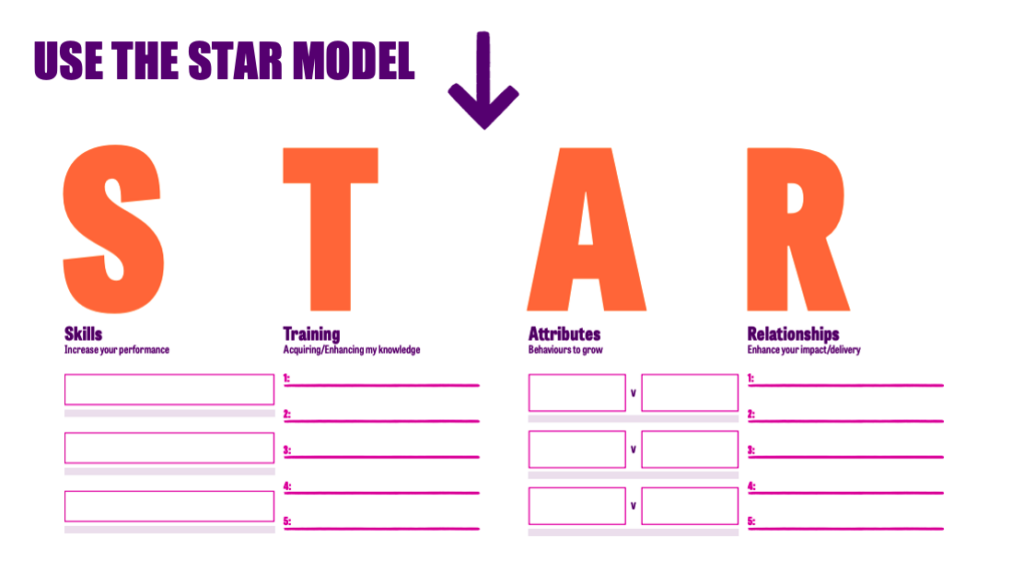
Why competency frameworks are vital to your employee experience
We believe competency frameworks are the lynchpin that should pull together every single pillar of your employee lifecycle.
They are the perfect tool to use in order to provide staff with absolute clarity on how to be successful with you, and create the kind of benchmark that will allow you to unlock your people’s full potential and drive high performance.
Over the years, we’ve had plenty of experience creating, revamping and refining competency frameworks for a large variety of clients.
We’ve come to know what works well; that’s why we’ve developed our very own, and ever so different, approach to creating dynamic competency frameworks that generate great results, whatever the issue you’re trying to solve.
“After completing our competency frameworks and career mapping piece of work with Let’s Talk Talent we have had 20 promotions/career progressions in 12 months with the pilot. Which is about 25% of that business area”
Senior L&D Business Partner, Cell & Gene Therapy Catapult

Beyond a basic skill set
Competency frameworks are an essential tool to help managers articulate to their team members what they need to do to be successful within the organisation, how they need to do it and how they can navigate their careers with you.
They are not a job description, a list of generic skills or even a list of really technical skills. Competency frameworks go much further than that. Sure, they encompass the skills, but also the training, the behaviours and the relationships needed in order to succeed within the business.
But this doesn’t mean they have to be complex, long, or left on a shelf until annual performance reviews.
Clear frameworks support motivated staff
People want to feel motivated in the workplace and be able to see a clear path of how to get ahead. Avoiding a demotivated workforce hinges on being transparent which will give your people; clarity on what is expected of them, what they need to do, and how they need to do it in order to perform well and be successful within the business.
Easy right? Yes, and no. How can you determine exactly what is expected of an employee, when everyone’s expectations may vary? How can you create a work environment that is inclusive, encourages the right behaviours and attitudes, and allows you to recruit the right staff and keep the right staff?
In short, how do you get started to get, keep and grow brilliant people?


Modernising outdated frameworks
Competency frameworks do have a bad rep. Dating back from the 1960s, they were initially used in organisations with a more hierarchical structure, at a time where personal development plans were based on long-term linear career trajectories. But the world of work has changed.
Companies can no longer rely on recruiting lifelong employees and investing in them years in advance to take on bigger roles. And people no longer want to wait around for specific seats to become vacant.
At Let’s Talk Talent, we think competency models can be a fantastic tool. But like everything else, they have to be maintained and adapted along the way. It’s only natural for a tool that’s been around for decades to get a makeover and transition towards a more agile and fluid corporate world.
“After completing our competency frameworks and career mapping piece of work with Let’s Talk Talent we have had 20 promotions/career progressions in 12 months with the pilot. Which is about 25% of that business area”
Senior L&D Business Partner, Cell & Gene Therapy Catapult
Our Competency Frameworks experts

Jo Taylor
Founder & Managing Director
For over 20 years, Jo has been working in HR and management, starting her career at the BBC as a storyteller, which gives her a unique insight into HR.
With 7 years experience at board level in a variety of leadership roles, Jo is adept at creating and implementing people-centric talent strategies, designing performance management processes, blended learning and development solutions, talent mapping and redesigns of recruitment, succession, reward and recognition strategies globally.
Competency Frameworks Consultants based in London
Let’s Talk Talent is a talent management and organisational development consultancy based in London, UK. We help our clients get, keep and grow brilliant people.
We work with a range of businesses from small SMEs to large multinational brands that operate globally.
Come and find out how Let’s Talk Talent can help you transform your competency frameworks and how it links into a better employee experience for your people.
FAQs
They are essential for organisations because they provide employees with clear guidance on how to be successful and advance within the organisation. They are the foundation for benchmarking performance and unlocking employees’ full potential, leading to high performance and staff retention. By encompassing not only skills but also training, behaviours, and relationships, these frameworks enable organisations to create a transparent work environment and recruit, retain, and develop the right talent. Competency Frameworks ensure employees know what is expected of them and how to perform effectively within the business.
Competency Frameworks are designed for organisations looking to enhance their performance, staff retention, and employee experience. These frameworks are valuable for HR professionals, managers, and executives seeking to provide employees with clear expectations, enhance motivation, and create a positive work environment. But more importantly, they also help individuals at all levels clearly understand what is expected of them and helps guide them to higher levels of performance and achievement within their careers.
Hiring succession planning consultants like Let’s Talk Talent can help speed up your succession planning process to something that can be rolled out to a department in 8-12 weeks.
Competency Frameworks have evolved to adapt to the changing nature of work. In the past, they were associated with long-term linear career trajectories, but today’s dynamic job market requires a more agile and fluid approach. Organisations can modernise outdated competency models by maintaining and adapting them over time to align with their current needs and goals. These frameworks should be used as tools for articulating performance expectations and providing employees with clear career paths, fostering motivation and retention in a rapidly changing corporate world.
They are essential for organisations because they provide employees with clear guidance on how to be successful and advance within the organisation. They are the foundation for benchmarking performance and unlocking employees’ full potential, leading to high performance and staff retention. By encompassing not only skills but also training, behaviours, and relationships, these frameworks enable organisations to create a transparent work environment and recruit, retain, and develop the right talent. Competency Frameworks ensure employees know what is expected of them and how to perform effectively within the business.
Got an Competency Frameworks project in mind?
You’ve come this far, why turn back now?
If you have a competency frameworks project or challenge you need help with, or just want to find out more about what we do, let’s talk.
"*" indicates required fields
Related Competency Frameworks resources
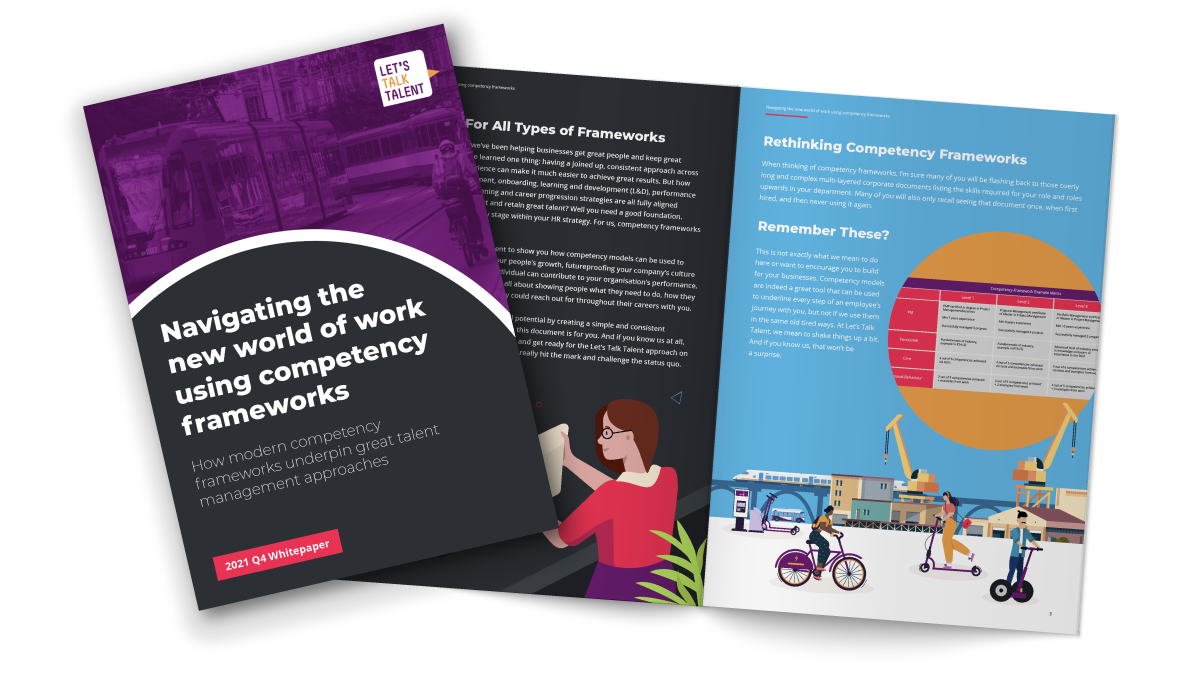
DOWNLOAD
Competency Frameworks Whitepaper
Find out how successful companies are using succession planning to ensure their continued success.
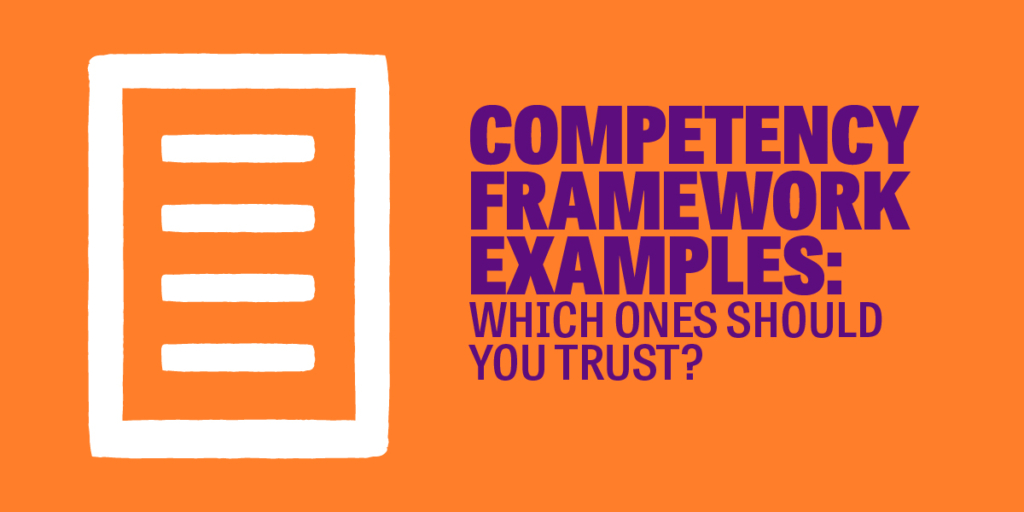
BLOG
Competency framework examples: which ones should you trust?
The competency frameworks to trust…and the ones to avoid
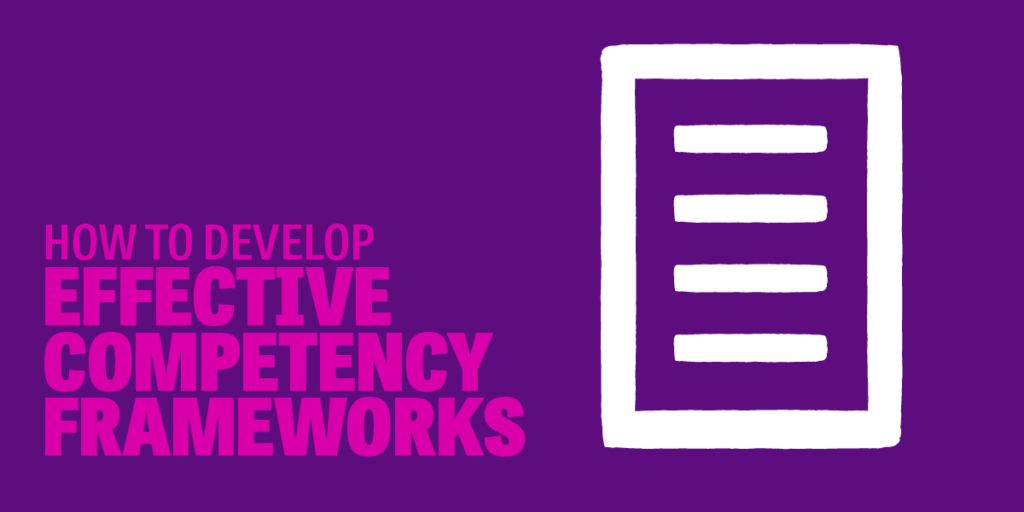
BLOG
How to develop effective competency frameworks
How to develop competency frameworks that will speak to people’s heads, hearts and hands all at the same time
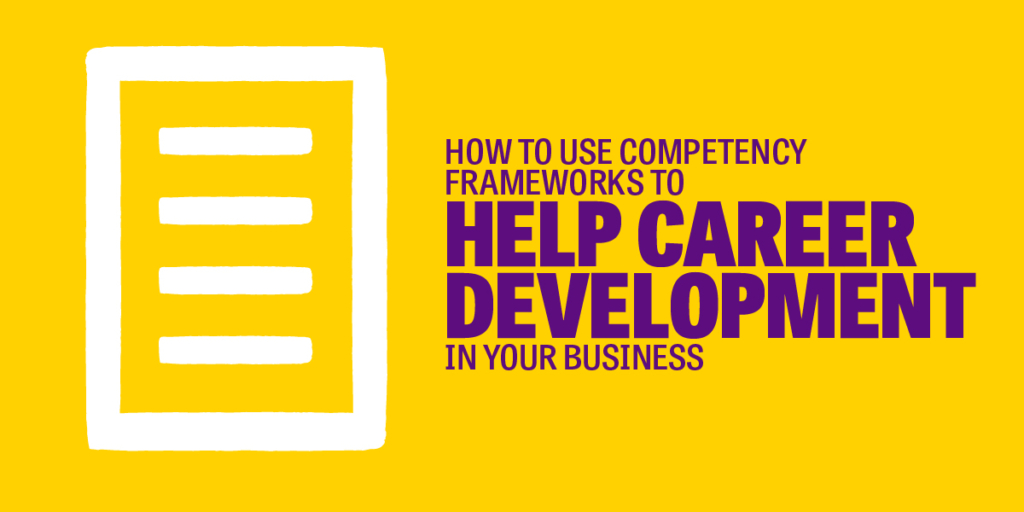
BLOG
How to use competency frameworks to help career development
How to use competency frameworks to help career development in your organisation
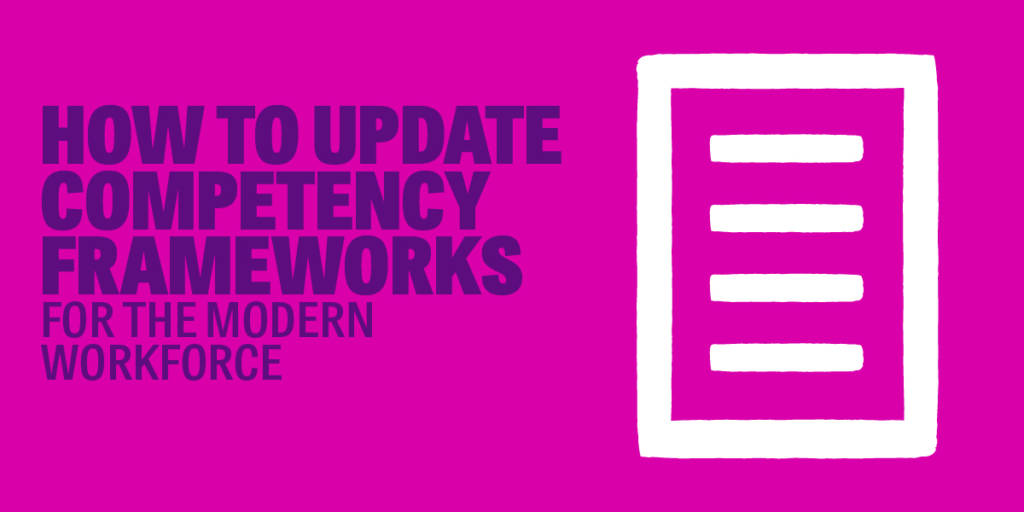
BLOG
Re-imagining competency frameworks for the modern workforce
How to dust off your good old competency models and turn them into an essential talent management tool.
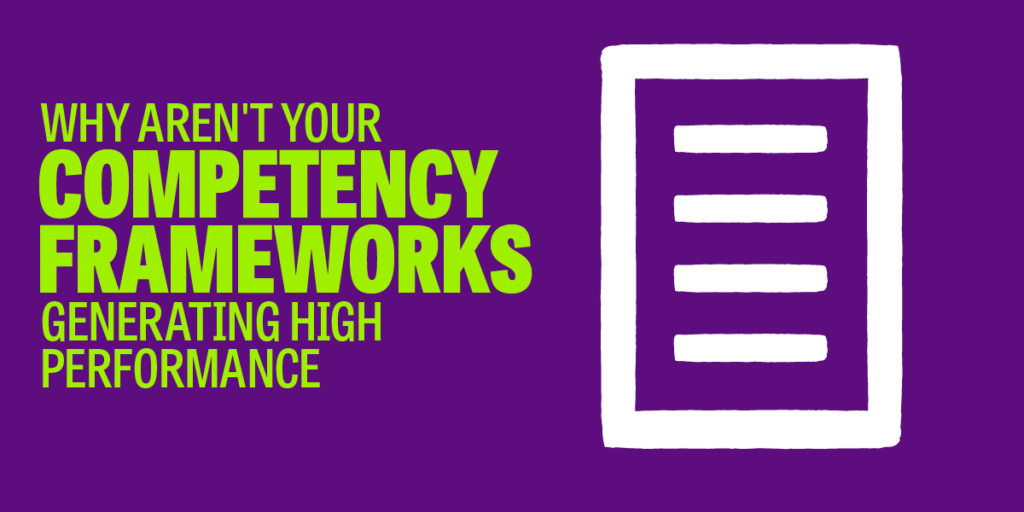
BLOG
Why your competency frameworks aren’t generating high performance
Competency frameworks are the lynchpin that holds together your entire employee experience. So why are today’s competency frameworks failing?
What else can we do?

Succession Planning
Competency frameworks support the development of your future leaders by helping to break down key gaps in skills, training, attributes and relationships required to progress onto the next level of seniority.

Behavioural frameworks
Competency frameworks and behavioural frameworks are closely aligned. Competency frameworks provide clarity on ‘what’ individuals must do in their role, whereas behavioural frameworks provide the ‘how’ in order to be successful.



